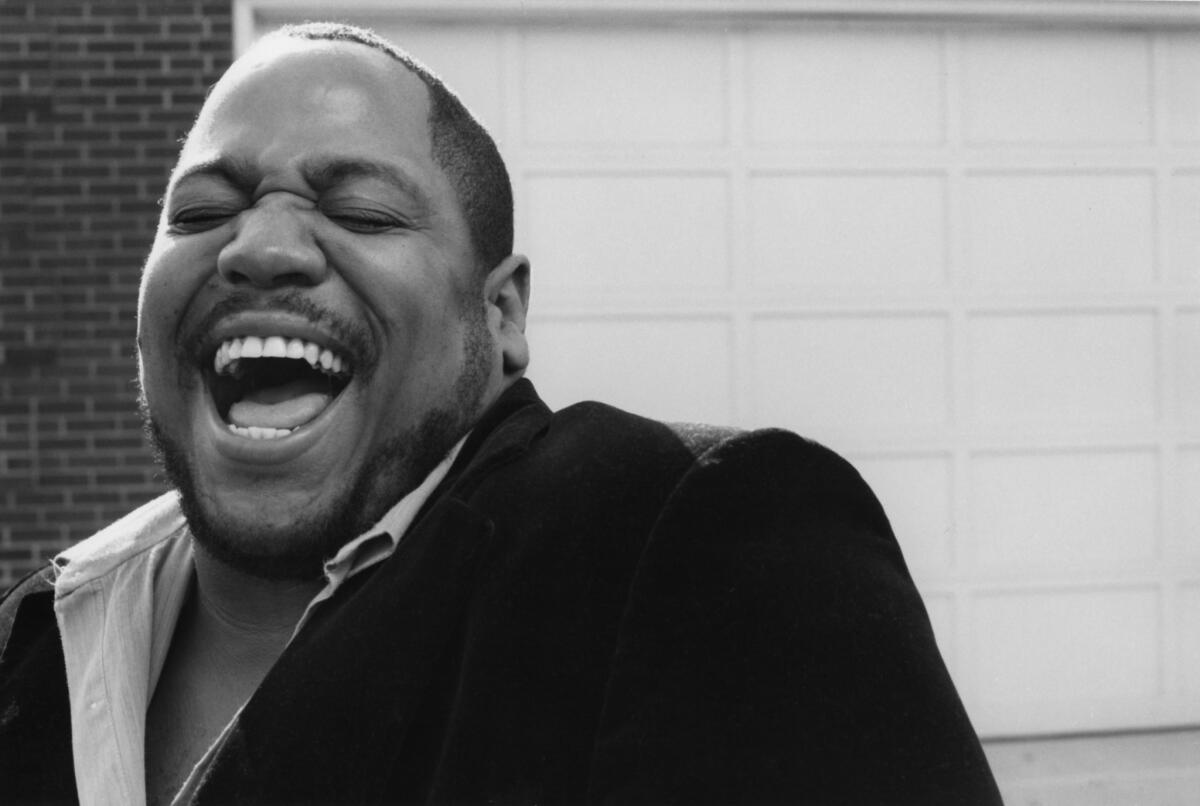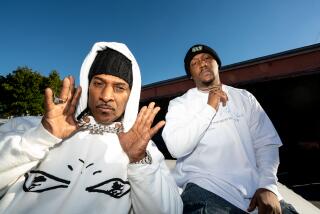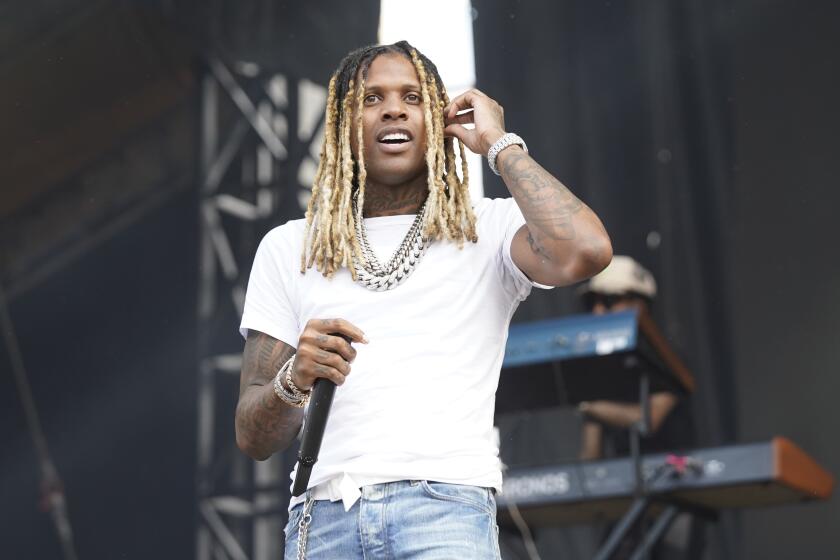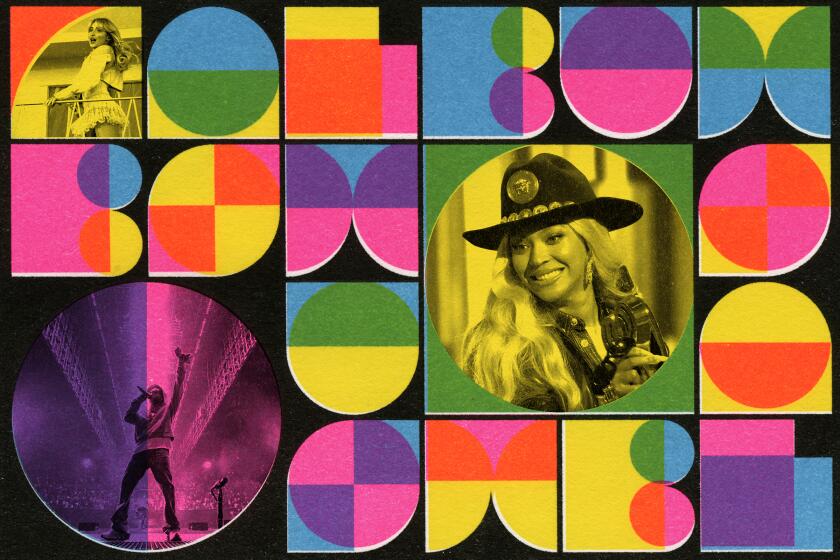Appreciation: Big Bank Hank: ‘Rapper’s Delight’ and the Sugarhill Gang’s revolution

His voice served as a call to action, an echo that continues today whenever a kid bellows the word “hip hop” into a microphone. It was in Henry “Big Bank Hank” Jackson’s lyrical wobble, the way he rapped through the Sugarhill Gang’s “Rapper’s Delight,” the singular hit that propelled a movement when it was released in 1979.
Jackson, 57, died Tuesday morning after complications from cancer, but his influence remains.
The news was confirmed by David Mallie, the business manager for the two surviving members of the original Sugarhill Gang, Guy “Master Gee” O’Brien and “Wonder Mike” Wright.
“They say that miracles never cease, I’ve created a devastating masterpiece,” rapped Big Bank Hank on “Rapper’s Delight,” a boast that codified one of rap’s central themes -- self-aggrandizement. Little did he know at the time how accurate he was, and that through said devastation Hank was introducing a flow that in the decades to come would move through culture one boasted rhyme at a time.
As seen on a widely circulating YouTube clip in performance on a local dance show, Big Bank Hank performs with a violet Kangol-style hat and a too-tight T-shirt. The hearty emcee grooves as he rhymes (lip-synced though it may be), lost in music with a fluid pelvic wobble. Next to the more restrained Wonder Mike and Master Gee, he is rap-funk personified. Hank embodies his verse as he raps of out-lasting Superman with a funny line belittling the superhero’s manhood. It’s no match for Hank’s “super sperm.”
“I’m here, I’m there, I’m Big Bank Hank, everywhere,” he raps. Again, he had no idea how true that was, though he witnessed the music’s evolution over the following decades as the hip-hop style he helped popularize become a form as vital to the ever-evolving story of American music as jazz and country and western.
This line, from the same verse, part of a larger bit involving a sexy reporter, further underscores his import: “She said she’s heard stories and she’s heard fables/That I’m vicious on the mike and the turntables.” That little turn of phrase carved into wax rap’s ongoing love-affair with turntables and microphones.
In the formative “Apache,” the Gang harnessed the titular brass and bongo breakbeat while they shouted, “Tonto, jump on it! Kemosabe, jump on it!” Big Bank Hank then made another claim: “I’m the one who shot Jesse James!”
To call the Sugarhill Gang the “big bang” of hip-hop diminishes the contributions of an entire community that imagined the music at its inception. Big Bank Hank, after all, got his start in the business as a bouncer and managing an act that would become the Cold Crush Brothers. He landed a spot in the Sugarhill Gang when the late music executive Sylvia Robinson tapped him to be part of a pop-oriented rap trio she was putting together.
Jeff Chang’s essential history of hip hop, “Can’t Stop, Won’t Stop,” describes the song as standing out amid party-oriented rap of the time due to the group’s birth as a studio creation.
Writes Chang, “Their raps on ‘Rapper’s Delight’ were the stuff that sounded good not in the parties, but on the live bootleg cassettes playing in the OJ cabs and on the boom-boxes --- the funny stories, the hookish slang, the same kind of stuff that would strike listeners around the world as both universal and new, not local and insular.”
“Rapper’s Delight” is considered the best selling 12-inch single of all time, though that’s tough to confirm in the era before Soundscan began in 1991 (and various litigation involving the track’s unapproved sampling of Chic’s “Good Times” further blurred the issue of numbers).
As happened with most first-generation rap teams (and second-, third-, fourth- and fifth-), Sugarhill Gang failed to sustain a bankable post-hit career, and didn’t receive royalty checks equal to its influence. In the years following the track’s success, the style morphed in dozens of different directions, though, becoming politicized through Grandmaster Flash and the Furious Five, electro-fied through Afrika Bambaataa and popularized through Run-DMC and the Beastie Boys.
Reverse engineer virtually any rap song since, and the circuitry leads back to “Rapper’s Delight,” and by extension, Big Bank Hank. His phrasing, his fluid, funky tone, has endured, passed down from rapper to rapper, an invisible but essential presence.
Follow Randall Roberts on Twitter: @liledit
More to Read
The biggest entertainment stories
Get our big stories about Hollywood, film, television, music, arts, culture and more right in your inbox as soon as they publish.
You may occasionally receive promotional content from the Los Angeles Times.











